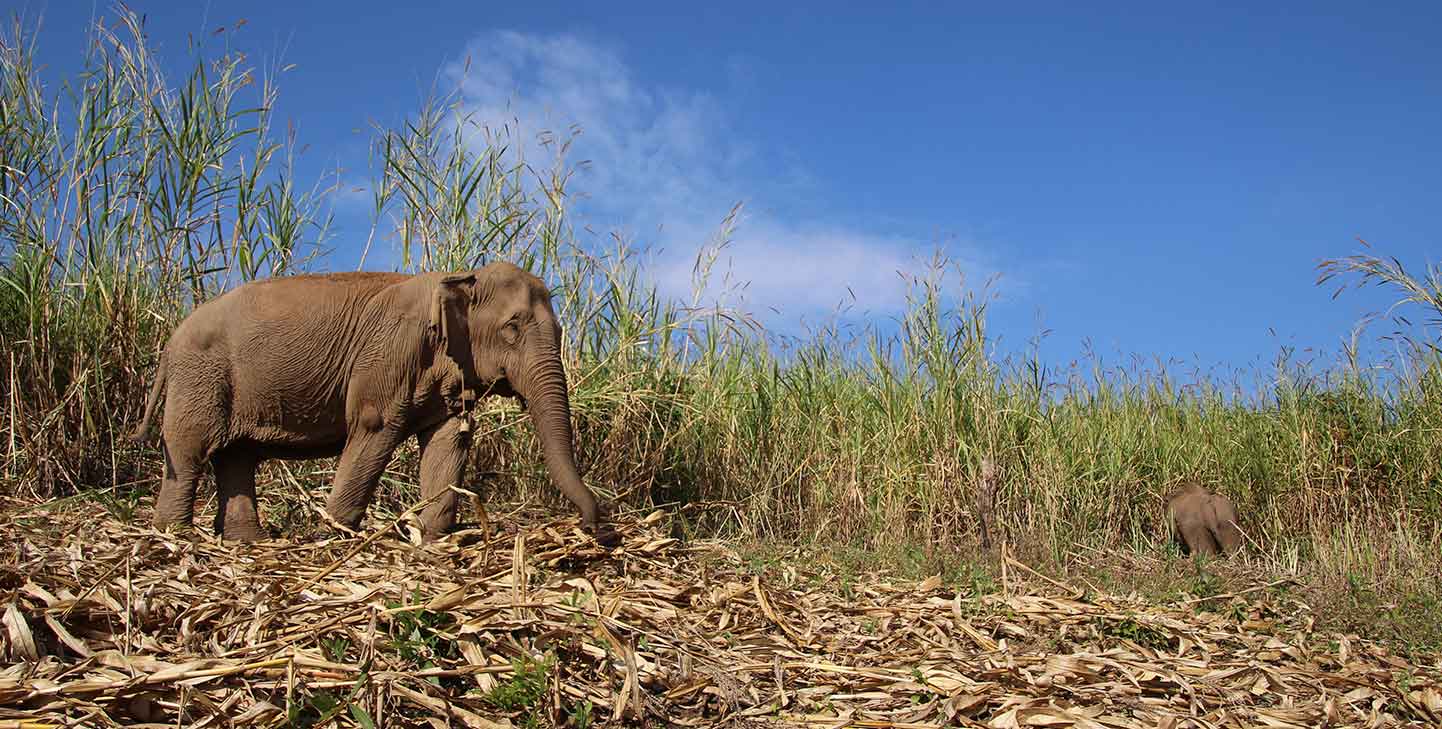Volunteer in Asia
A vibrant collision of the ancient and the modern.
As the largest, most populous continent, Asia offers endless opportunities to volunteer and make a meaningful, lasting impact. Collaborate with local organisations doing real development work, participate in cultural exchanges, immerse yourself in new communities and make memories that last a lifetime.
Contribute to meaningful work while volunteering in Asia
From the striking mountains of the Himalayas to the clear blue waters of the Thai coastline, GVI offers multiple life-changing locations to volunteer in Asia. During your volunteer experience, you’ll also have time to immerse yourself in the continent’s languages, traditions, architecture and history.
By volunteering in Asia with GVI, you’ll make an important contribution through hands-on, meaningful work. Because we collaborate with local organisations to really understand the needs on the ground, you can be confident that your impact will be felt long after your volunteer period.
Types of volunteer work offered by GVI in Asia
Whether you’re interested in supporting local women’s empowerment initiatives, teaching English, promoting global health practices, assisting with early childhood development programs, or something in between, GVI has a program for you. To help you pick a specific location, we’ve laid out descriptions of the different GVI projects in South and Southeast Asia.
Programs we offer:
- Early childhood development – use storytelling and structured play time to help young children develop numeracy and literacy skills
- Women’s empowerment – contribute directly to sustainable gender equality initiatives through skills development workshops
- Public health – improve awareness on public health and wellbeing through workshops and awareness raising events
- Teaching – get certified as a TEFL instructor as you learn to transfer valuable English skills to local children and adults
- International development – learn how international projects are run in a local context, including best practices and project management
We offer many of these programs in multiple locations. Head to our locations tab to find activities in a specific hub.
Our programs
Make the most of our unique programs with these exclusively curated local adventure and wellness experiences.
Where does GVI work in Asia?
GVI currently operates in three countries in Asia: Nepal, Thailand and Cambodia. We offer a diverse range of volunteer opportunities in each of these locations, covering everything from teaching English to business skills development and more. When you volunteer in Asia with GVI, you’ll also have time to travel and experience the region.
Cambodia
Our volunteer projects are based at our community hub in Siem Reap, northwestern Cambodia. Programs include early childhood education, women’s empowerment and teaching English to Buddhist monks.
Experience the dichotomy of Siem Reap – both a bustling city and a hub of cultural and historical importance. Travel slightly further afield and you’ll find yourself walking through the countryside, surrounded by lush natural landscapes.
Nepal
The ultimate destination for the adventurous traveller. Volunteer in Nepal, where your home base will be in the vibey town of Pokhara, in the Himalayan foothills. Contribute to early childhood education, women’s empowerment, international development or public health initiatives while volunteering alongside some of the most welcoming communities in the world.
Immerse yourself in the local culture by visiting some of the Buddhist monasteries and Hindu temples in the region, such as Tal Barahi Temple or Shanti Stupa. Visit Kathmandu and see why it’s a world-class tourist destination. Explore the beautiful Phewa Lake and take in the blissful mountain scenery.
Thailand
Thailand combines rich history and culture with towering limestone cliffs and beautiful beaches. In Phang Na, in southern Thailand, you have the opportunity to collaborate with local community members on education, public health or community development initiatives as a volunteer.
There’s plenty to see around Thailand in your free time, which we encourage you to do! Visit one of the iconic temples like Wat Phrathat Doi Suthep. Or learn about the widely practised belief system, Theravada Buddhism. Join a cooking experience with community members and learn to prepare traditional dishes.
Your safety
We prioritise safety and ethics in all our volunteer activities. When you volunteer in Asia with GVI, you can be assured that your health, well-being and peace of mind are our priorities. We promise you support before, during and after your GVI experience. At each of our community hubs we also have comprehensive health and safety policies.
For our under 18 volunteers, we have a parent info pack that explains what GVI volunteering in Asia is all about and how we look out for our younger volunteers. Our staff are on call 24-hours a day to ensure that our participants feel safe and cared for, no matter where they are in the world.
Our ethics
All of our programs, whether focused on women’s empowerment, childhood education, business skills development or otherwise, are rooted in local experience and aligned with local needs. We communicate with our partners on the ground who assist with monitoring and maintaining ethical standards and practices.
If you’d like to read more about our ethics, we have useful information in our ten ethical principles and five human empowerment principles and our actions against oppression.
Our position on orphanage volunteering
GVI does not run any activities in residential care institutions, like orphanages. This is based on decades of research that shows the harm caused by institutionalised care to children. We instead work with local organisations to reunify children with families if possible, or to find a family environment for each child.
We also have a Child and Vulnerable Adult Protection Policy, which we have implemented across our organisation to ensure the safety and well-being of all involved.
Is there an age limit on volunteering in Asia?
Not at all. GVI does not have a maximum age limit for our volunteers in Asia. While we welcome anyone over 18 to join us for a gap year, volunteer holiday, or sabbatical, our under 18 volunteers can join one of our teen programs.
Do I need any qualifications or skills to volunteer in Asia?
You don’t! Most of our volunteers come with minimal experience in their specific volunteer area. We do on-the-ground training to prepare you for your projects. While some skills might be useful in tasks like teaching or construction, we don’t expect you to come with any preexisting knowledge. If you’d like to find a program specifically aligned to your skillset, speak with one of our friendly enrolment managers.
How long are the volunteer programs?
You can volunteer in Asia for anything from 1 to 24 weeks. If you’d like to combine multiple locations into one long volunteer experience, speak with our enrolment team.
Is it safe to volunteer in Asia?
Absolutely. We take every precaution to make sure your journey to and from our programs is safe and organised, and that you’re confident and comfortable throughout your time with us. Read more in the safety and ethics tab.
What’s the accommodation like?
Each location offers different types of accommodation, from communal housing to homestays, bed and breakfasts, and even hotels. Speak to one of our enrolment managers if you’d like to secure an accommodation upgrade, as this is available in a number of our locations.














































